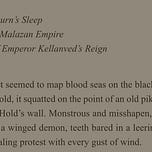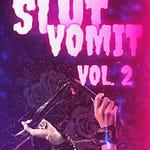Seemed (my own favorite filler word)
298 Filler Words & Phrases That Rob Your Writing of Its Power
Almost – Use approximations such as this sparingly. Specific terms are better. Ex: It was almost time for class. Better: Class started in one minute.
About – Try not to use this common filler word when discussing quantities. Use “approximately” or a range instead. Ex: About 20 people attended. Better: Approximately 20 people attended. Or: Fifteen to twenty people attended.
Actualfacts – Redundant phrase. You don’t need actual. Ex: Listen to the actual facts of the case. Better: Listen to the facts of the case.Armedgunman – Redundant phrase. You don’t need armed. Ex: An armed gunman robbed the bank today. Better: A gunman robbed the bank today. (Calling people “brother” in mercenary outfits even if there’s women. Couldn’t a hired gun be a gunman, but also use swords?)In my opinion – Filler phrase. Delete it. Ex: In my opinion, blogging rocks! Better: Blogging rocks!
Umm – Just seeing if you were paying attention. You know not to use umm, uhm, and their awkward, placeholder brethren in your writing, right? The user of crutch words like these are common in public speaking, but they shouldn’t be anywhere near your list of possible word choices when writing. (And for you public speakers out there, Toastmasters is a godsend if you want to remove filler sound from your speech.)
Examples to instill ambiguity.
“He winced.” (Minimal ambiguity)
“He winced, and seemed as if he was almost in pain.” (More maximal ambiguity)
An example from Steven Erikson’s Gardens of The Moon:










Share this post